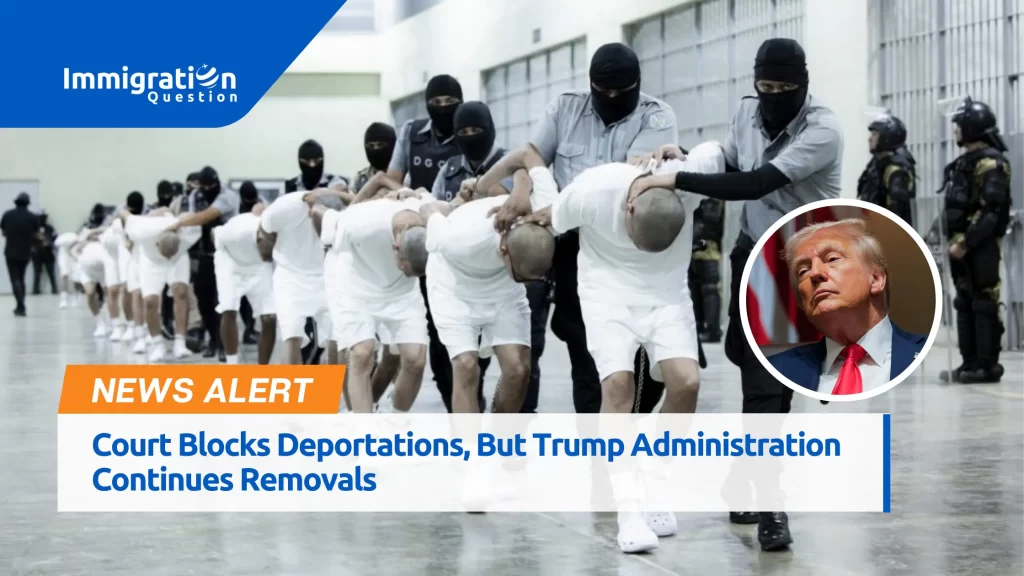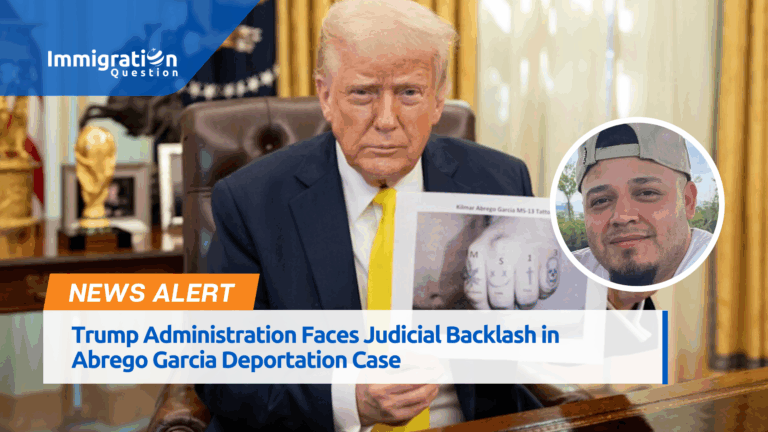The Trump administration has deported hundreds of immigrants, ignoring a judge’s order to halt removals. They justified this move by referencing a rarely used wartime law that has given them the power to do so, sparking legal battles and international chaos. Critics warn that the administration could wrongfully target innocent individuals as courts prepare to review the policy’s legality.
Controversial Deportations Result in an Uproar
The Trump administration has deported hundreds of immigrants to El Salvador and Honduras despite a federal judge’s order blocking the deportation. The deportations were executed under an unusual presidential declaration that invoked an 18th-century wartime law aimed at getting rid of suspected gang members from Venezuela.
It was confirmed that the deportation flights were already in the air when the judge ordered that they be turned around. Despite verbal instructions from the judge to return the planes, the administration proceeded with the deportations. This sparked legal and political controversies, with questions surrounding whether the administration had any respect for the courts.
Legal Battle Over Deportation Order
A U.S. District Judge issued the ruling in response to a lawsuit filed on behalf of Venezuelan immigrants who were detained in Texas. Their lawyers argued that the administration had unlawfully labeled them as members of the Tren de Aragua gang without going through due process. The judge’s initial ruling temporarily blocked all deportations under the presidential order for up to 14 days.
However, the Trump administration fought back, with claims that the ruling had no legal merit and was issued too late to affect the already departing flights. The Department of Justice filed an appeal, arguing that the president had broad authority to deport any individual seen as a security threat.
Wartime Powers Justification
The administration justified the deportations by invoking the Alien Enemies Act of 1798 – a rarely used law – saying the president had the power to deport foreigners during wartime. President Trump defended his action, portraying the influx of undocumented immigrants as an “invasion” and emphasizing the risks posed by these “criminal” groups.
Before the Trump Administration, the law had only been used three times—during the War of 1812 and World Wars I and II. Some arguments using the Alien Enemies Act of 1798 are unprecedented since Congress has not declared any formal war. The judge overseeing the case acknowledged this concern, noting that the president’s authority under the act could face serious legal challenges.
International and Political Reactions
The deportations have sparked reactions from both domestic and international officials. The government of Venezuela strongly condemned the move, comparing it to historical human rights violations. However, the president of El Salvador, President Nayib Bukele, welcomed the arrivals, agreeing to house around 300 immigrants in high-security prisons for a reported cost of $6 million.
U.S. officials claim that deporting gang-affiliated individuals would protect American communities. However, experts are more concerned that innocent individuals could be wrongfully removed without a chance to defend themselves. Critics also warned that if not arrested, the policy could be used to justify mass deportations of Venezuelans without clear evidence of gang affiliation.
Fate of Deported Individuals
El Salvador’s government showed videos of the deported individuals arriving under heavy guard. They were cuffed, shaved, and put in white uniforms at the CECOT prison, a high-profile detention center known for its strict conditions.
The administration is yet to provide evidence that all the deportees were confirmed members of the Tren de Aragua gang. Human rights organizations worry that many of the deportees may have had legitimate asylum claims or no criminal history.
Looking Ahead: Court Blocks Deportations, But Trump Administration Continues Removals
With the 14-day deportation ban still in effect, the legal battle over Trump’s executive order is far from over. A hearing scheduled for Friday will determine whether the administration can continue enforcing its policy or if further judicial intervention is required.
The outcome of this case could set a major precedent for immigration law and presidential authority in the U.S. If the courts rule against the administration’s actions, it could limit the president’s power to unilaterally deport individuals under wartime declarations. However, if the ruling is overturned, it could pave the way for broader and stricter deportation measures in the future.
As legal challenges unfold, immigrant communities and advocacy groups remain on high alert, fearing further removals under the administration’s aggressive immigration stance.
To stay updated and informed, watch our news section or drop your immigration questions on immigrationquestion.com and get responses from professional attorneys.










